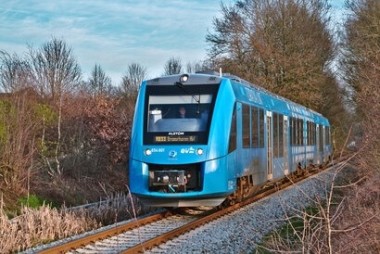Lhyfe and Deutsche Bahn cooperate on development of trains powered by green hydrogen ( www.renewableenergymagazine.com )
I've never jumped on the hydrogen bandwagon. I know it's technically renewable, but I feel hydrogen is a stop-gap resource.

I've never jumped on the hydrogen bandwagon. I know it's technically renewable, but I feel hydrogen is a stop-gap resource.
